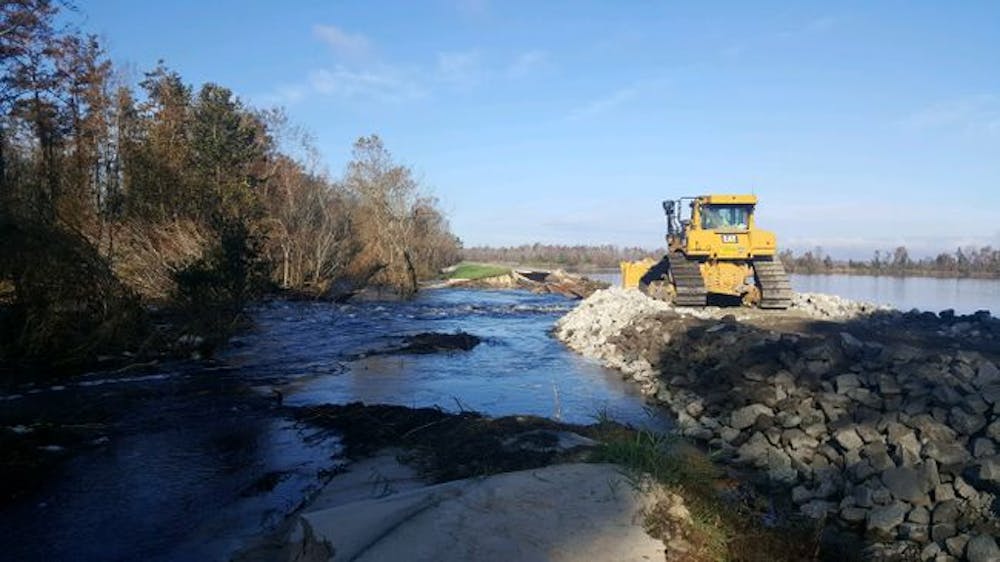Duke Energy signed a settlement on Dec. 31, 2019 entailing the company cleaning up and relocating approximately 80 million tons of coal ash from six North Carolina sites. The company would be responsible for relocating the coal ash into environmentally friendly, lined landfills by 2035.
On Feb. 5, Judge Paul C. Ridgeway of the Wake County Superior Court filed a consent order incorporating the terms of the settlement to ensure Duke Energy will follow through with the settlement’s conditions.
Coal ash, a byproduct of burning coal, poses large environmental and human health threats. In the past, coal ash has been stored in holes in the ground, then covered with water. There are only six remaining sites in North Carolina where coal ash is stored in this manner: the Cliffside site bordering Cleveland and Rutherford counties, the G.G. Allen site in Gaston County, the Marshall site in Catawba County, the Belews Creek site in Stokes County and the Roxboro and Mayo sites in Person County.
The Duke Energy coal ash settlement will lead to the largest coal ash cleanup in United States history.
Sharon Martin, deputy secretary for public affairs at the N.C. Department of Environmental Quality (NCDEQ), said the department determined on April 1, 2019 that Duke Energy must excavate its coal ash from the six sites.
The Daily Tar Heel reached out to Duke Energy, but they did not respond to a request for comment.
The Southern Environmental Law Center (SELC) represented the communities and environmental groups in litigation of the settlement, and Duke Energy negotiated the consent order, Martin said.
The original deadline for Duke Energy to excavate and relocate the coal ash was 2029. However, Frank Holleman, senior attorney for the SELC, said Duke Energy now has until 2035 for some of the sites to ensure that the excavation and relocation are done in a safe and thorough manner.
“The ash has been dumped into the unlined sites for decades, so it’s understandable it’s going to take some period of time to permit and set up the new landfills and then remove the ash in an orderly, safe way to the new storage,” Holleman said. “So, that’s why the timetables, it was based on the reasonably safe, expeditious time frame under which Duke believed it could remove the ash.”



